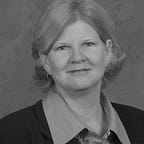Academic Credibility in Faculty-led Education Abroad
Faculty addressing the culture learning priorities of courses taught abroad
A tradition in U.S. higher education dating back to the age of Colonial Colleges, professors have valued the opportunity to introduce students to learning through travel, primarily to Europe. Thousands of U.S. college and university professors lead groups of students on travel programs across the globe every year. According to Education Abroad professionals, these group trips are important high impact educational experiences for students. And for hundreds of professors passionate about introducing students to the wonders of international travel, they commonly cite the need for students to develop “global competencies” necessary for successful careers in an increasingly global economy and workforce. This is undoubtedly a laudable goal for faculty willing to enhance student learning outside the classroom.
Despite several hundred years of tradition, there are many detractors that are adamantly against the practice of study abroad. The challenge for educators is the limited quantity and quality of research that proves the credibility of study abroad as a meaningful educational methodology. There is little disagreement that the tradition of study abroad has always been praised for providing transformative life experience for the vast majority of participants. Thus, the praiseworthy anecdotal evidence has maintained the excitement of study abroad as a rite of passage for college students.
The media often paints a picture of college study abroad as a glamorous and debaucherous vacation for rich students. The question is about what students are learning while abroad, and why they should be paying tuition and receiving academic credit for weeks or months of travel freedom.
Several decades ago, parents and university administrators expressed concern for the safety of students as a series of deaths during study abroad were reported. It was a time of questioning that required more justification for an activity that could possibly put students at risk. Despite the swell of support from faculty who wanted the tradition of study abroad to continue, the focus of study abroad shifted to standards, policies, and legal liability for student safety. These priorities led to an unprecedented growth in professional Education Abroad program providers. The majority of students participating in Education Abroad programs were utilizing program providers who focused on establishing credibility and standards.
In the past decade, affordability, diversity and accessibility of participants, and concern for safety has led to an overwhelming increase in short-term faculty-led programs. Short-term study abroad programs (8-weeks in length or less) are largely responsible for the growth in study abroad participation. According to IIE’s Open Doors report, during the 2016–2017 academic year there were 40,000 more students who participated on short-term study abroad programs compared to five years before. Short-term faculty-led programs reflect approximately 64% of the total number of American study abroad students.
The focus on academic credibility is now stirring under-currents in the often scrutinized arena of Education Abroad efficacy. Okay… why would Education Abroad courses be any different than courses taught on campus? Standards, rigor, objectives, assessment, contact hours, peer-reviewed oversight.
Some faculty may justify an “alternate” academic standard for Education Abroad courses because of the value-added by the cultural experience. However, we don’t typically see any of the standard academic measures for “culture learning” in Education Abroad course syllabi. It is understandable that most faculty would not have the expertise or training to develop measurable learning objectives, intentional learning experiences, and assessment for “culture learning”. Thus, it often goes as an unstated, unintentional, and not assessed learning expectation. Unfortunately, perpetuating the lack of credibility and justification for Education Abroad.
So, let’s talk more about it!
